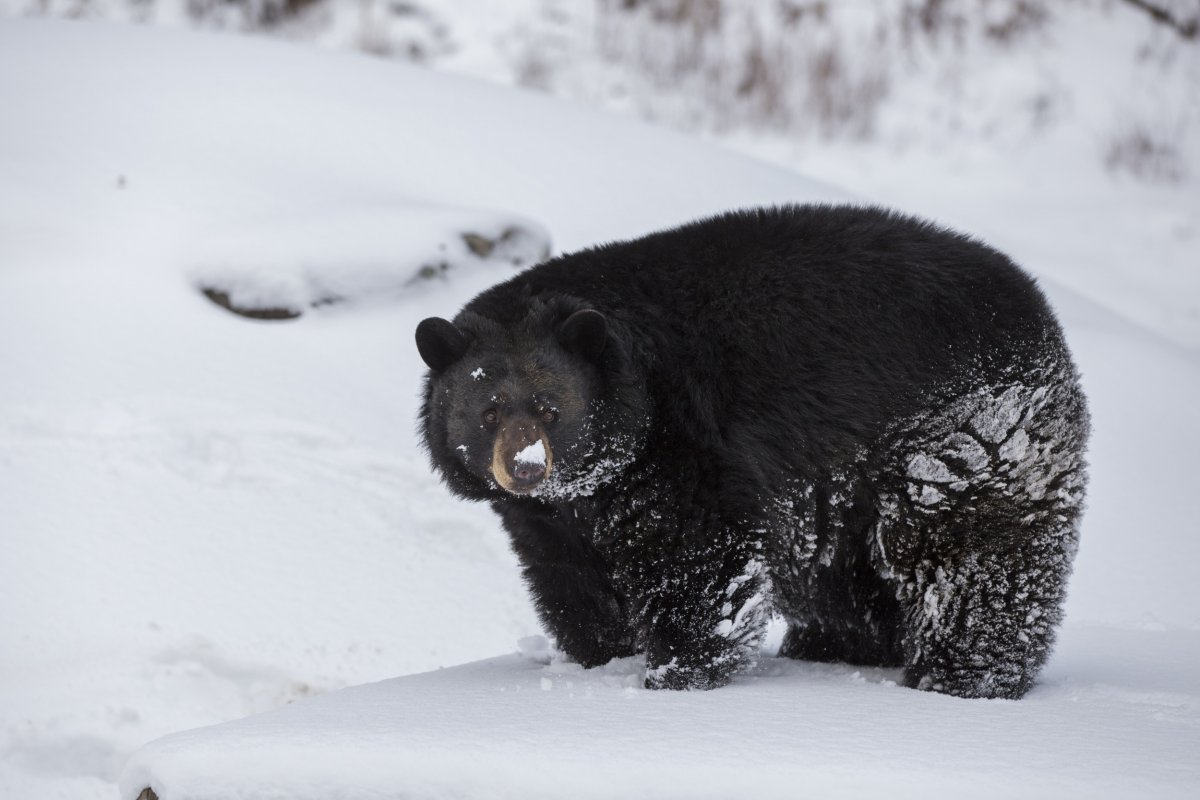A bear that has been spotted roaming around a Lake Tahoe ski resort this week has forced ski lifts to shut down.
The bear was seen wandering around Palisades Tahoe, looking at people and garbage bins on the slopes. The two ski lifts nearest to the bear were closed by the resort to keep skiers and snowboarders a safe distance away from the curious creature.
"In case you missed it, we've had a buddy hanging around the top of Granite Chief this week," Palisades Tahoe posted to Instagram along with pictures of the bear.
"He's very cute, but we've been giving him space for his safety and ours. That's why you may have noticed a few early closures in this area over the past few days. Should we name him? Any ideas?" the post asked.
The bear is likely a black bear, of which there are between 25,000 and 35,000 in California.
The California Department of Fish and Wildlife (CDFW) told local news website SFGate that the bear was previously caught and tagged last year and was released back into the wild in El Dorado County.
"It's not a problem bear," CDFW spokesperson Peter Tira told SFGate. "It was trapped in a more developed, urban area of Lake Tahoe. We hoped it would stay in the wild, but it's come back to close to where it was born."

The bear is thought to be between 1 and 2 years old and likely came out of hibernation recently. Hibernation is a state of reduced metabolic activity during which a bear's heart rate, body temperature and metabolic rate drop significantly.
This reduction in physiological processes allows bears to conserve energy as they rely on their fat reserves accumulated during the more bountiful months. Pregnant females give birth during hibernation, and the den provides a safe, warm environment for newborn cubs during the most vulnerable weeks early in their lives.
"Bears eat mainly vegetation and insects, which are difficult to find in the winter. Hibernation is an elegant way for bears to avoid having to be out looking for food when it is unavailable," Christopher Servheen, the president and board chair of the Montana Wildlife Federation and previously a U.S. Fish and Wildlife Service grizzly bear recovery coordinator, told Newsweek.
"Bears live off their stored fat during hibernation and do not eat, drink, urinate or defecate for up to 4.5 months while in hibernation. Their heart rate slows, but they can wake up if disturbed," Servheen said.
Bears usually leave their dens between March and April, venturing out in search of a meal.
"It's spring, they're waking up, getting more active and looking for food," Tira said.
The CDFW plans to send in biologists to "haze" the bear and scare it away from the resort.
"It could be paintball guns, making noise, chasing it," Tira said. "Sometimes beanbag guns. It doesn't harm the bear, but it certainly gives it a very unfriendly experience."
Do you have a tip on a science story that Newsweek should be covering? Do you have a question about bears? Let us know via science@newsweek.com.
Uncommon Knowledge
Newsweek is committed to challenging conventional wisdom and finding connections in the search for common ground.
Newsweek is committed to challenging conventional wisdom and finding connections in the search for common ground.
About the writer
Jess Thomson is a Newsweek Science Reporter based in London UK. Her focus is reporting on science, technology and healthcare. ... Read more
To read how Newsweek uses AI as a newsroom tool, Click here.








